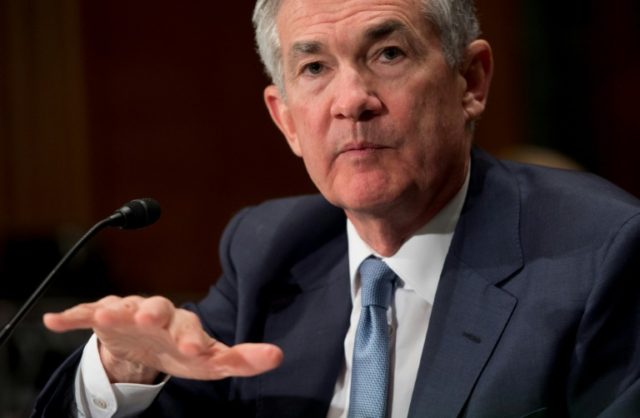Trade disputes are not a threat to the economy. They may be its life-preserver.
Federal Reserve officials believe that the economy is currently operating well-above its longer-run potential, according to minutes from the most recent meeting of the Fed’s monetary policymaking committee. Unemployment is lower than Fed leaders and staffers believe is sustainable in the long-run. Economic output is running higher than they think is sustainable.
This raises the specter of inflation or financial imbalances. Some members of the Federal Open Markets Committee expressed “concern that a prolonged period in which the economy operated beyond potential could give rise to heightened inflationary pressures or to financial imbalances that could lead eventually to a significant economic downturn,” the Fed minutes reported.
But the fears of an overheating economy are getting a reprieve from an unexpected source: trade disputes.
According to the Fed minutes, many of the business contacts of Fed officials “expressed concern about the possible adverse effects of tariffs and other proposed trade restrictions, both domestically and abroad, on future investment activity; contacts in some Districts indicated that plans for capital spending had been scaled back or postponed as a result of uncertainty over trade policy.”
“Most participants noted that uncertainty and risks associated with trade policy had intensified and were concerned that such uncertainty and risks eventually could have negative effects on business sentiment and investment spending,” the minutes stated.
In light of an economy that is leaping from strength to strength, this means that trade disputes could wind up keeping the economy on a steady course, avoiding the overheating scenario.
In other words, the economy is doing so well that a bit of trade friction would not be bad. If it ever develops into a drag on the economy, it will simply balance out the boom created by the rise in confidence and the fall in taxes.
That’s a big “if.” Apart from the anecdotal evidence that trade is creating risks to economic expansion, the actual data show investment is doing very well even while talk of “trade wars” is rampant.
Here are some data points from the minutes.
- “Recent data suggested that growth of household spending had picked up, while business fixed investment had continued to grow strongly.”
- “Participants reported that business fixed investment had continued to expand at a strong pace in recent months, supported in part by substantial investment growth in the energy sector.”
- “Conditions in both the manufacturing and service sectors in several Districts were reportedly strong and were seen as contributing to solid investment gains.”
That mirrors what Fed chair Jerome Powell said in his press conference last month.
“So, right now, we don’t see that in the numbers at all. The economy is very strong, the labor market is strong, growth is strong. We really don’t see it in the numbers. It’s just not there. But — so I — I would put it down as more of a risk,” Powell said when asked about trade disputes possibly weighing on the economy
Trump’s tax cuts and the current path of spending are “supportive of economic growth,” according to the Fed minutes.
A bigger concern than trade disputes is the slowdown in Europe and around the world. Trade disputes are mentioned just four times in the minutes. Europe’s recent troubles come up six times.
“Many participants saw potential downside risks to economic growth and inflation associated with political and economic developments in Europe,” and emerging markets.

COMMENTS
Please let us know if you're having issues with commenting.